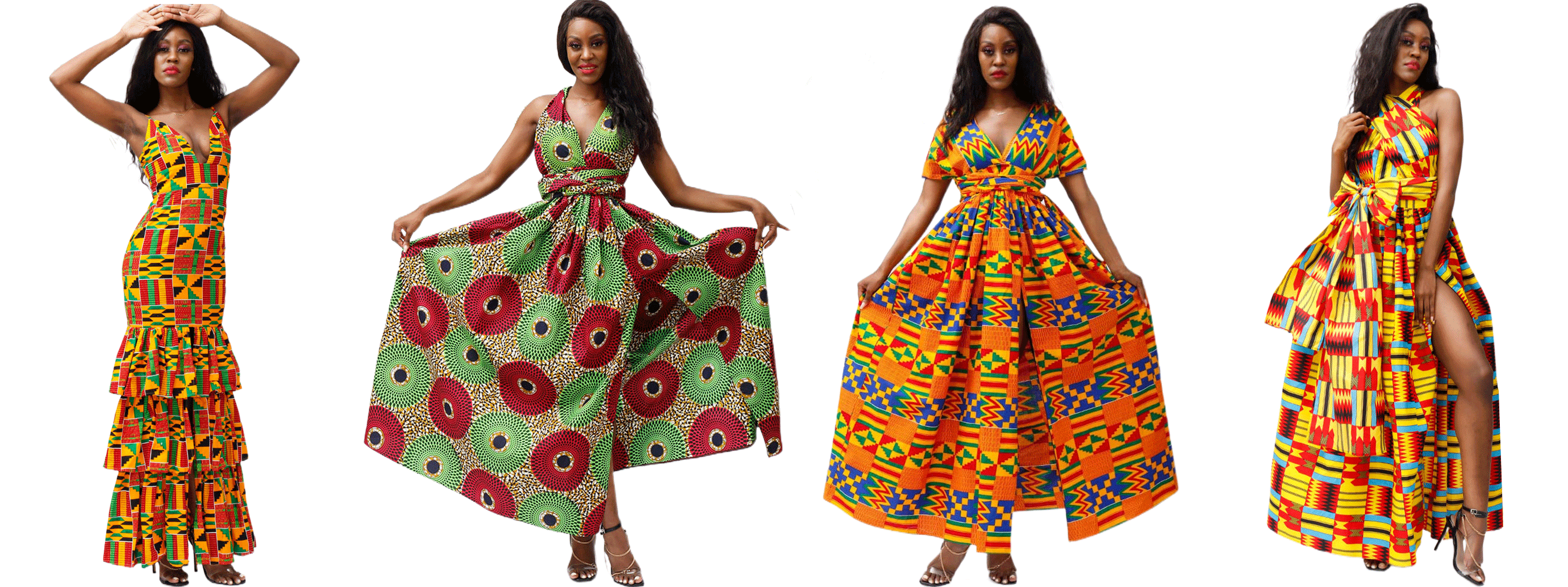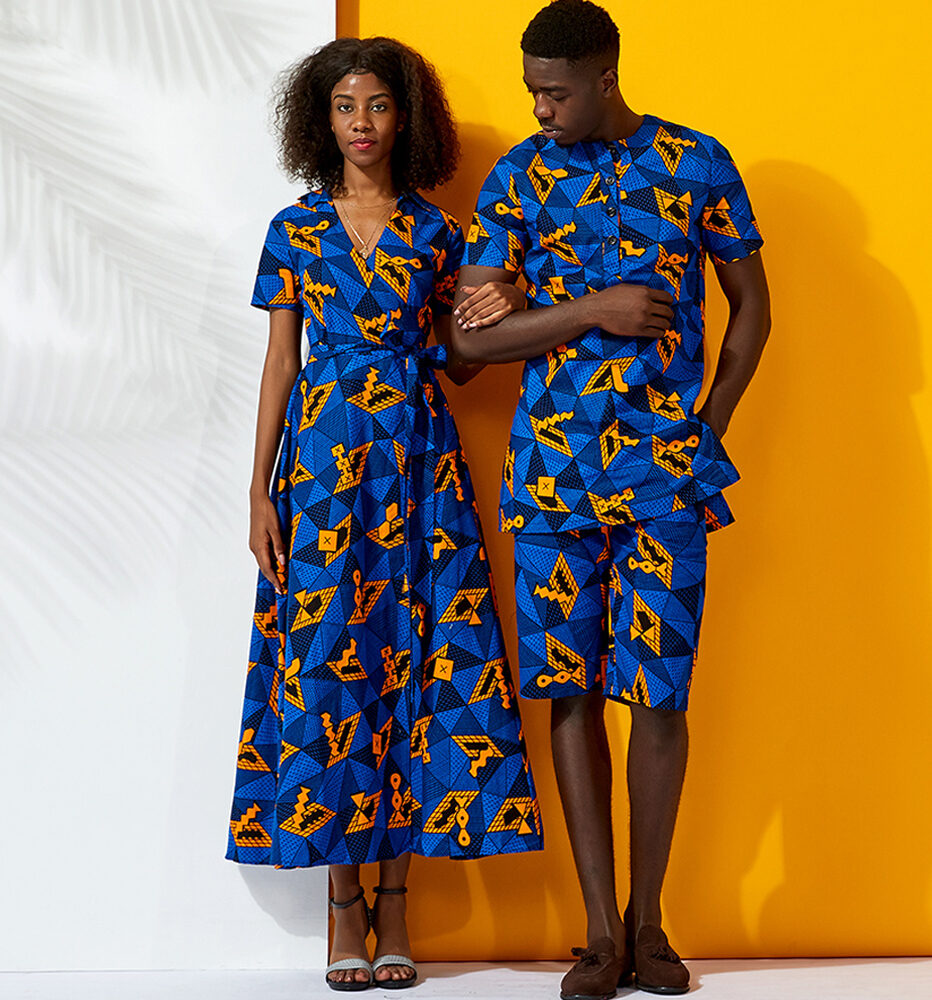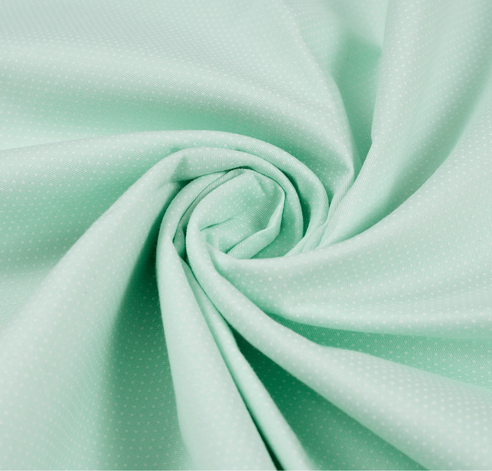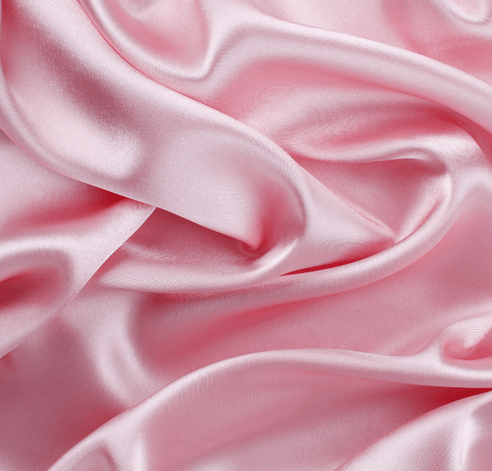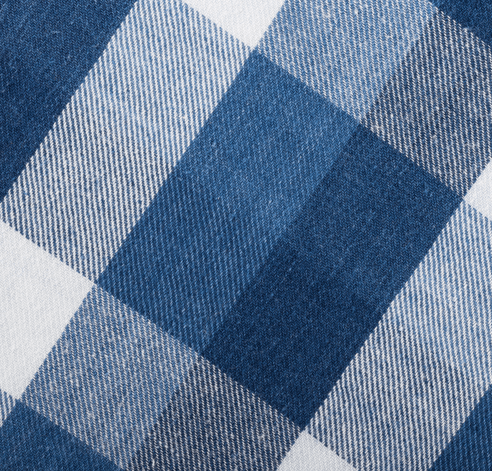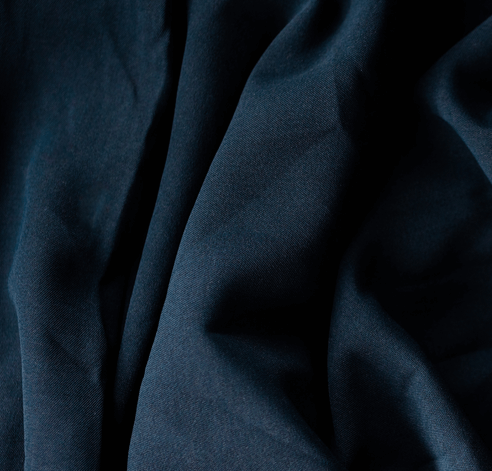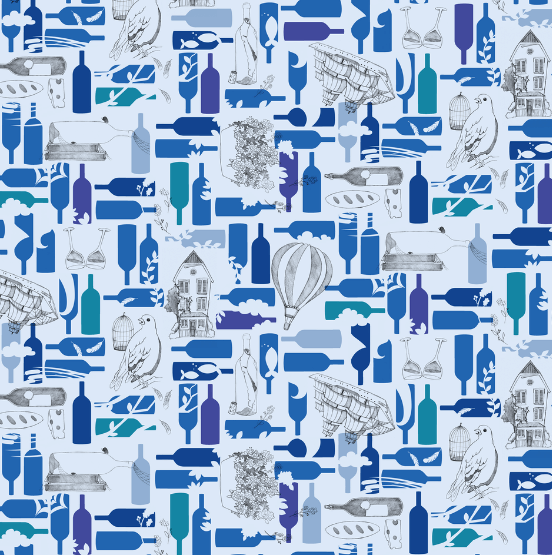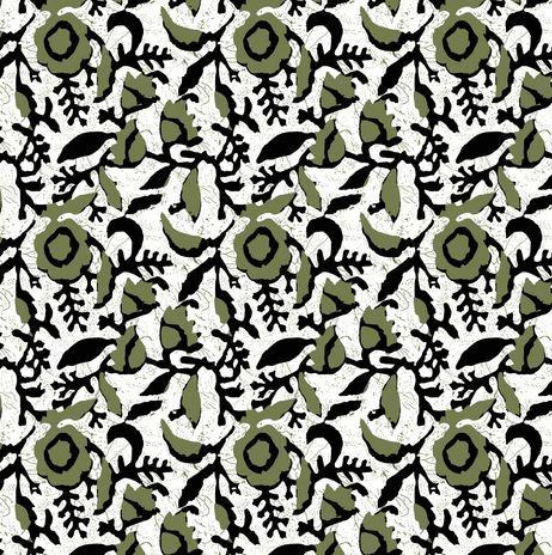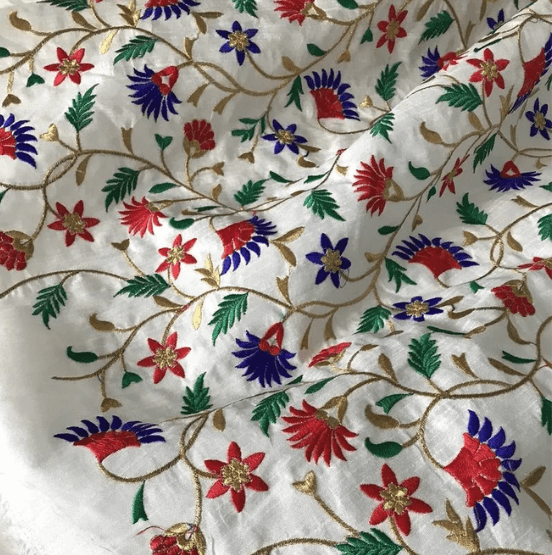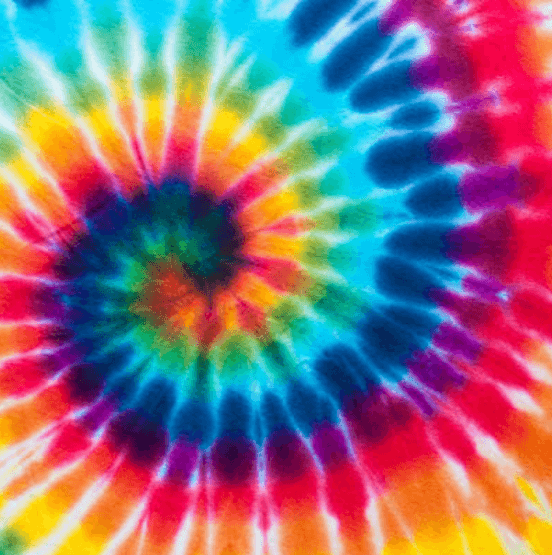1. What Is African Clothing?
African clothing is the traditional clothing worn by the people of Africa. It is often brightly colored and elaborately decorated with patterns and designs that reflect the culture and traditions of the people who wear it.
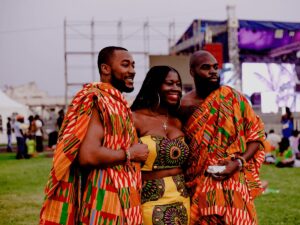
African clothing is typically loose-fitting and comfortable, allowing for a great deal of flexibility and movement. It is also often quite colorful and vibrant, making it a striking addition to any wardrobe.
African print clothing is typically made from natural fibers such as cotton, linen, and wool. These materials are often dyed using traditional methods that give them their rich colors. This type of clothing is often quite durable, making it ideal for everyday wear.
2. The Evolution of African Clothing: From Traditional to Modern
African clothing has evolved over the years from traditional to modern. Here is a quick overview of the evolution of African clothing:
| Evolution of African Clothing |
1800
|
In 1880, most African clothing was made of animal skin and bark cloth. This type of clothing was very basic and was only meant to cover the body. It did not offer any protection from the elements or from other animals. |
1900
|
By 1900, some African tribes had begun to wear cloth that was imported from other countries. This cloth was often brightly colored and decorated with patterns. It was still quite basic, however, and did not offer much protection from the elements. |
1950
|
The 1950s saw a major change in African clothing. They started to use cotton, wool, and eventually synthetic fabrics. The clothing became more elaborate and ornate, and it began to be used as a way to show status and wealth. |
Today
|
Today, African print dresses are a mix of traditional and modern styles. Many people still wear traditional clothing, but it is now often combined with modern items such as jeans, t-shirts, and sneakers. The African style is unique and stylish, and it is becoming increasingly popular all over the world. |
3. Fabrics Used in African Clothing
When it comes to African clothing, there is a wide range of fabrics that can be used. Here are some of the most popular fabrics:
Ankara
Ankara fabric is a wax-printed fabric that is commonly used in African clothing bulk. It is often brightly colored and has a bold pattern.
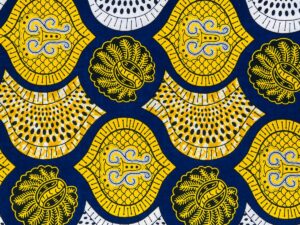
Bogolan
Bogolan also known as mudcloth, is a handwoven fabric that is made using traditional methods. It is usually dark in color and has a unique pattern.
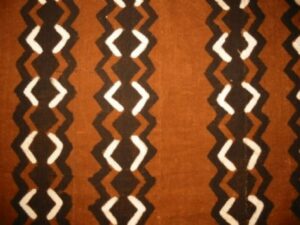
Barkcloth
Barkcloth is a type of fabric that is made from the bark of trees. It is often used in traditional African clothing.
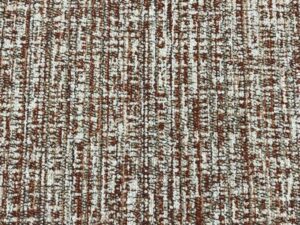
Kanga
Kanga is a brightly colored cloth that is often used in African fashion wholesale. It is decorated with patterns and designs that reflect the culture of the people who wear it.
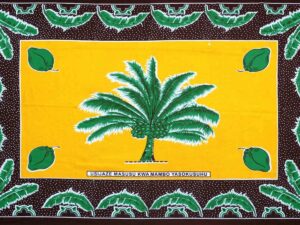
Shweshwe
Shweshwe is a type of dyed cotton fabric with geometric patterns. The fabric is often brightly colored and is considered to be a symbol of African heritage.
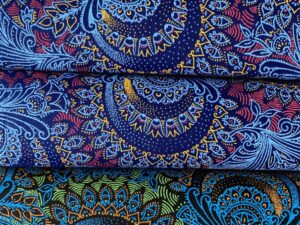
As you can see, there are many different fabrics that can be used for African apparel wholesale. Each has its own unique look and feel. So, when you are choosing fabric for your African clothing, be sure to consider all of your options to find the perfect fabric for your needs.
4. Types of Traditional African Clothing
There are many different types of traditional African clothing. Each type of clothing has its own unique history and meaning. Here are some of the most popular types of traditional African clothing:
Dashiki
The dashiki is a traditional African shirt that is often brightly colored and decorated with intricate patterns. It is worn by men and women in many parts of Africa and is usually made from cotton or wool.
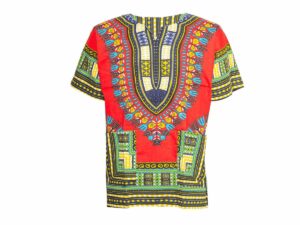
Kente
The kente cloth is a traditional Ghanaian textile that is handwoven from colorful strips of fabric. It is often worn as a ceremonial garment or as a symbol of national pride.
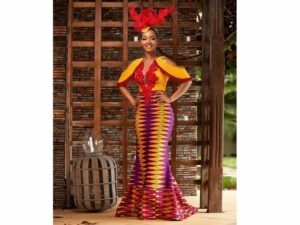
Djellaba
The djellaba is a traditional Moroccan robe that is made from thick, woolen fabric. It is usually white or black in color and is worn by both men and women.
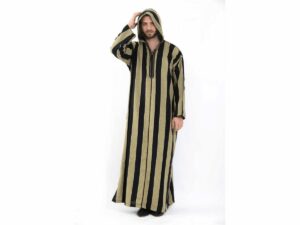
Boubou
The boubou is a traditional West African garment that is worn by both men and women. It is usually made from a light, cotton fabric and is decorated with colorful patterns.
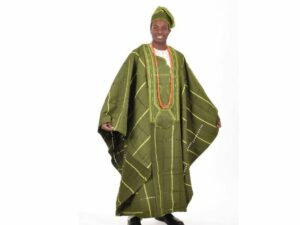
Kanga
The kanga is a traditional East African cloth that is often printed with proverbs or sayings. It is worn by women as a skirt or headscarf and is also used to carry babies on their backs.
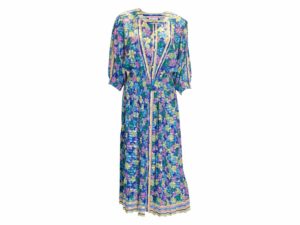
Kanzu
The kanzu is a traditional garment that is worn by men in East Africa. It is usually made from a white, cotton fabric and reaches down to the feet.
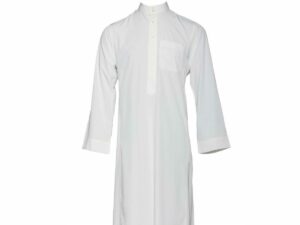
Shuka
The shuka is a traditional Maasai blanket that is worn as a cloak or cape. It is usually red or black in color and is decorated with patterns of beads and cowrie shells.
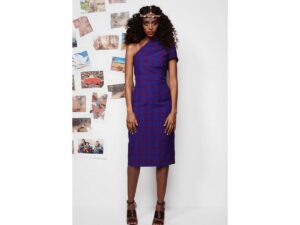
These are just a few of the many different types of traditional African clothing wholesale. With so many different options to choose from, you can be sure to find the right for your needs.
5. 4 Factors To Consider When Designing an African Clothing
When it comes to African clothing, there are a few key factors that you should consider in order to make sure that your clothing is not only stylish but also comfortable and practical. Here are a few things to keep in mind when designing African clothing:
#1 Purpose
Before you start designing African wholesale clothes, it’s important to first determine what the purpose of the clothing will be. Whether you’re designing traditional attire for a special occasion or for everyday wear, make sure that the style and design of your clothing will meet the needs of the wearer.
#2 Culture
When it comes to African wholesale clothing, it’s important to consider the culture of the wearer. African culture is rich and varied, and each region has its own unique style of dress. Make sure that your clothing design reflects the culture of the wearer so that they can feel comfortable and confident in their attire.
#3 Weather
Another important factor to consider when designing African attire is the weather. Because Africa is a large continent with a wide range of climate zones, it’s important to make sure that the fabric and style of your clothing are appropriate for the weather in the region where it will be worn.
#4 Body Type
When designing African clothing, it’s important to take the body type of the wearer into consideration. Make sure that the cut and style of the clothing are flattering and comfortable for the wearer’s body type.
These are just a few of the factors to consider when designing African clothing. By keeping these things in mind, you can be sure that your clothing will be both stylish and practical.
6. How To Start Your Own African Clothing Line
Starting your own African clothing line can be a fun and rewarding experience. There are many different ways to go about it, and the best way will vary depending on your individual circumstances. Here are a few tips to get you started:
Step#1 Do Your Research
The first step to starting any business is to do your research. This is especially important when starting an African clothing line, as there is a lot of cultural and historical context that you need to be aware of. Once you have a good understanding of the African fashion industry, you can start to narrow down your focus.
Step#2 Find a Niche
There are many different types of African clothing, so it’s important to find a niche that you can specialize in. This will make it easier to market your products and stand out from the competition. For example, you could focus on traditional West African clothing, or you could specialize in modern African fashion.
Step#3 Create a Business Plan
As with any business, it’s important to have a solid business plan in place before you start. This will help you to map out your goals and objectives, and it will also give you a framework to follow as you get started.
Step#4 Choose a Name and Logo
Your clothing line’s name and logo are important branding tools, so you’ll need to choose them carefully. They should be reflective of your brand identity and they should be catchy and memorable.
Step#4 Find a Manufacturer
There are many different wholesale African clothes suppliers out there, so it’s important to shop around and compare prices. You should also ask for samples before committing to anyone.
Step#5 Create a Website
In today’s digital world, it’s important to have an online presence for your business. Creating a website is a great way to promote your products and reach a wider audience. Be sure to include high-quality product photos and descriptions, as well as clear pricing information.
Step#6 Market Your Products
Now that you have a product and a website, you need to start marketing your African clothing line. There are many different ways to do this, including social media, online ads, and PR. The key is to be creative and get your name out there.
Step#7 Start Selling
The final step is to start selling your products. You can do this through your website, online stores, or even brick-and-mortar retailers. Whichever route you choose, be sure to provide excellent customer service and keep your prices competitive. This will help you to build a loyal customer base and ensure long-term success for your business.
Starting your own African clothing line can be a fun and rewarding experience. These 7 steps will help you get started on the right foot. With a little planning and effort, you can create a successful business that everyone will love.
7. The Cost of Starting a Clothing Line
The cost of starting a clothing line will vary depending on a number of factors, including the type of clothes you want to sell, the quantity and materials. Generally speaking, you can expect to spend anywhere from $10,000 to $50,000 to get your business up and running.
Of course, the exact amount will depend on a number of factors, including the size and scope of your operation. If you’re just getting started, it’s important to be realistic about the costs involved. After all, there’s no point in starting a business if you’re not prepared to invest the time and money necessary to make it a success.
While the cost of starting a clothing line may seem like a lot, it’s important to remember that this is an investment in your future. With the right planning and execution, your clothing line can be a profitable and rewarding business.
8. How To Work With African Clothing Manufacturers
If you decide to work with an African clothing manufacturer, there are a few things you should keep in mind to ensure a smooth production process. Here are a few tips:
Be Clear About Your Designs
When working with an African clothing manufacturer, it is important that you are clear about your designs. This means providing detailed sketches or patterns of what you want to be created. The more specific you can be, the better. This will help to avoid any misunderstandings and ensure that your garments are made to your exact specifications.
Be Flexible With Your Timeline
When working with an African clothing manufacturer, it is important to be flexible with your timeline. The manufacturing process takes time, and it is important to be realistic about how long it will take to produce your garments. Trying to rush the process will only lead to frustration on both sides.
Communicate Regularly
When working with an African clothing manufacturer, it is important to communicate regularly. This means keeping in touch throughout the entire process, from design to delivery. This will help to ensure that both sides are on the same page and that there are no surprises along the way.
9. 7 Tips When Sourcing for Manufacturers
When it comes to sourcing, there are a few key things to keep in mind to make sure you’re getting the best possible product from your manufacturer. Here are a few tips:
#1 Do Your Research
The first step is always to do your research. Once you have a good understanding of the market, you can start to narrow down your options.
#2 Consider Quality
It’s important to consider quality when sourcing a manufacturer. After all, you want your product to be made well and to last. Make sure to ask about the quality control process of any potential manufacturer, and get references if possible.
#3 Compare Prices
When you’re looking at African wholesale clothing manufacturers, it’s important to compare prices. Remember, though, that cheaper isn’t always better. You’ll want to balance price with quality and other factors to make sure you’re getting the best possible value for your money.
#4 Consider Location
The location of your manufacturer can be important for a number of reasons. For one thing, it can affect shipping costs. It can also impact turnaround time, as well as the ease of communication. Make sure to choose a location that makes sense for your business.
#5 Consider Services
When you’re looking at African clothing companies, be sure to consider the services they offer. This can include things like design, assembly, packaging, and more. The more services a company offers, the easier it will be to work with them.
#6 Ask for Samples
Before you commit to working with a manufacturer, be sure to ask for samples of their work. This will give you a good idea of the quality of their products and whether or not they’re a good fit for your business.
#7 Read the Reviews
Reading reviews is always a good idea, and this is no different when it comes to african fashion companies. See what other people have to say about an African clothing company before you make a decision. This can be a great way to get an unbiased opinion.
These are just a few things to keep in mind when you’re sourcing for African clothing suppliers. By following these tips, you can be sure you’re making the best possible choice for your business.
10. 5 Traps To Avoid Before Starting Your Own Clothing Line
Here are 5 insider tips of the clothing industry so you can avoid most traps when starting your own clothing line:
#1 Don’t Overproduce
It’s important to produce enough products to meet customer demand, but you don’t want to end up sitting on a ton of unsold products. Overproduction can tie up valuable resources and leave you with dead stock that you’ll eventually have to mark down or get rid of entirely.
#2 Don’t Ignore Your Competition
It’s important to research your competition and understand what they are doing well and what they are not doing well. This will help you position your brand in the market and find your niche.
#3 Don’t Try to Do Everything Yourself
As a clothing line owner, you will quickly realize that you can’t do everything yourself. It’s important to delegate tasks and build a strong team around you. This will allow you to focus on the important aspects of running your business.
#4 Don’t Underestimate the Importance of Marketing
Marketing is the most important aspect of running a successful clothing line. You need to make sure that people are aware of your brand and that they understand what your brand stands for.
#5 Don’t Forget About the Details
The details are important when it comes to your clothing line. From the design of your logo to the packaging of your products, everything needs to be well-thought-out and high-quality. This will help you build a strong brand that people will love.
These are just a few of the traps that you need to avoid when starting your own clothing line. By following these tips, you’ll be well on your way to success in creating a brand that customers will love.
Dive Deeper Into Our Resources
Looking for more diverse product options? Browse through our handpicked selections:
General Clothing Manufacturing and Business Insights
Specialized Clothing Manufacturing
For some insightful reads, we’ve curated a list of recommended articles just for you:
Still haven’t found what you’re looking for? Don’t hesitate to
contact us. We’re available around the clock to assist you.
Conclusion
So, if you’re new to the clothing manufacturing game and looking for some advice, we hope this article has been helpful. As a start-up African clothing brand, it’s important to do your research and find the right production partner who shares your values and can help you bring your vision to life. Don’t hesitate to get in touch with us today to discuss how we can work together. We’re always happy to help!
